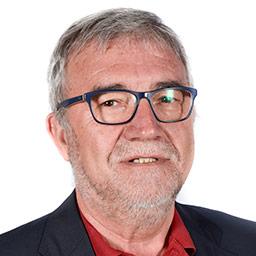Runtime Aware Architectures

Speaker:
Mateo Valero, University of Catalonia (UPC)
Data dell'evento:
Friday, 25 May, 2018 - 09:00
Luogo:
Aula Magna
Contatto:
Alessandro Pellegrini <pellegrini@diag.uniroma1.it>
In the last years the traditional ways to keep the increase of hardware performance to the rate predicted by the Moore's Law vanished. When uni-cores were the norm, hardware design was decoupled from the software stack thanks to a well defined Instruction Set Architecture (ISA). This simple interface allowed developing applications without worrying too much about the underlying hardware, while computer architects proposed techniques to aggressively exploit Instruction-Level Parallelism (ILP) in superscalar processors. Current multi-cores are designed as simple symmetric multiprocessors on a chip. While these designs are able to compensate the clock frequency stagnation, they face multiple problems in terms of power consumption, programmability, resilience or memory. The solution is to give more responsibility to the runtime system and to let it tightly collaborate with the hardware. The runtime has to drive the design of future multi-cores architectures.
In this talk, we introduce an approach towards a Runtime-Aware Architecture (RAA), a massively parallel architecture designed from the runtime's perspective. RAA aims at supporting the activity of the parallel runtime system in three ways: First, to enable fine-grain tasking and support the opportunities it offers; second, to improve the performance of the memory subsystem by exposing hybrid hierarchies to the runtime system and, third, to improve performance by using vector units. During the talk, we will give a general overview of the problems RAA aims to solve and provide some examples of hardware components supporting the activity of the runtime system in the context of multi-core chips.
Short bio:
Mateo Valero Cortes
Director of the Barcelona Supercomputing Center
Professor, University of Catalonia (UPC)
Barcelona, Spain
Mateo Valero, http://www.bsc.es/cv-mateo/, obtained his Telecommunication Engineering Degree from the Technical University of Madrid (UPM) in 1974 and his Ph.D. in Telecommunications from the Technical University of Catalonia (UPC) in 1980. He is a professor in the Computer Architecture Department at UPC, in Barcelona. His research interests focuses on high performance architectures. He has published approximately 700 papers, has served in the organization of more than 300 International Conferences and he has given more than 500 invited talks. He is the director of the Barcelona Supercomputing Centre, the National Centre of Supercomputing in Spain.
Dr. Valero has been honoured with several awards. Among them, the Eckert-Mauchly Award 2007 by the IEEE and ACM; Seymour Cray Award 2015 by IEEE; Charles Babbage 2017 by IEEE; Harry Goode Award 2009 by IEEE: ACM Distinguished Service Award 2012; Euro-Par Achievement Award 2015; the Spanish National Julio Rey Pastor award, in recognition of research in Mathematics; the Spanish National Award “Leonardo Torres Quevedo” that recognizes research in engineering; the “King Jaime I” in basic research given by Generalitat Valenciana; the Research Award by the Catalan Foundation for Research and Innovation and the “Aragón Award” 2008 given by the Government of Aragón. He has been named Honorary Doctor by the University of Chalmers, by the University of Belgrade, by the Universities of Las Palmas de Gran Canaria, Zaragoza, Complutense de Madrid, Cantabria and Granada in Spain, by the University of Veracruz and CINVESTAV in Mexico. "Hall of the Fame" member of the ICT European Program (selected as one of the 25 most influents European researchers in IT during the period 1983-2008. Lyon,November 2008); Honoured with Creu de Sant Jordi 2016 by Generalitat de Catalunya. It is the highest recognition granted by the Government.
In December 1994, Professor Valero became a founding member of the Royal Spanish Academy of Engineering. In 2005 he was elected Correspondant Academic of the Spanish Royal Academy of Science, in 2006 member of the Royal Spanish Academy of Doctors, in 2008 member of the Academia Europaea and in 2012 Correspondant Academic of the Mexican Academy of Sciences. He is a Fellow of the IEEE, Fellow of the ACM and an Intel Distinguished Research Fellow.
In 1998 he won a “Favourite Son” Award of his home town, Alfamén (Zaragoza) and in 2006, his native town of Alfamén named their Public College after him.
